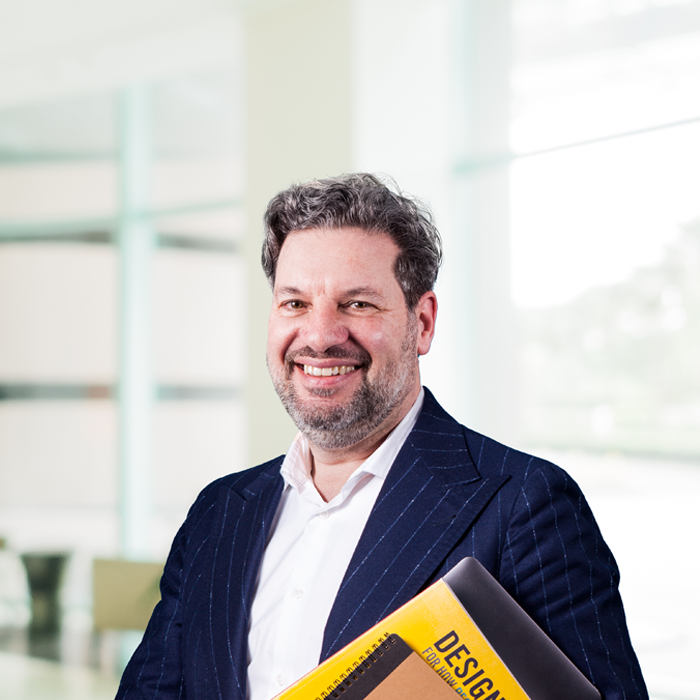BSL on the importance of personalised learning research

For more than 10 years, you’ve been able to design adaptive – or personalised – learning journeys within the aNewSpring platform. We believe that many more training providers and learners could benefit from this approach. To draw attention to the opportunities, we started a study, along with Bohn Stafleu van Loghum, into the effects of personalised learning.
For this interview, we spoke with Karin Linden and Sara Swier from BSL, a provider that has extensive experience with personalised learning.
What kind of company is BSL?
Bohn Stafleu van Loghum is a contemporary and innovative media company that focuses on professionals and students in healthcare. Bohn Stafleu van Loghum wants to contribute to improving healthcare through knowledge solutions for (future) professionals in healthcare. Think of books, magazines, events and learning solutions such as e-learning.
BSL's slogan is: How can we help you to continuously improve yourself?
Why are you interested in personalised learning?
“Let’s define personalised learning as a form of learning in which you are only offered what you haven’t yet mastered. This helps both the learners and trainers to form a good picture of how they’re doing in their learning process.
From a broader perspective, it’s currently important that the labour market in healthcare has the right flexibility. People must be able to upskill and reskill quickly in order to have the right knowledge and skills in time, especially in the current, tight, labour market. Personalised learning can help with this, but we don’t use it enough yet. A big advantage is that you spend time on the exact knowledge that’s needed, no more and no less. This is also important in relation to the workload experienced in healthcare.
For BSL, it is important to keep a good eye on all kinds of learning interventions and approaches in order to know what is demonstrably effective. What benefits our customers the most?”
Why are you investing in personalisation research together with aNewSpring?
“Learning technology has really taken off in recent years. It’s important to be actively involved in this yourself and to feed the developments that are made, instead of just using it. Research allows you to do that.
We continue to look at ourselves critically and regularly check whether the methods we use are still effective. We also just find it very interesting and are curious about the outcome! Any outcome will be helpful.”
“We hope to gain insight into whether, why and when investing in adaptive learning is a good idea.”
How was the research set up?
“We use our adaptive learning programme ‘Medical mathematics’. This means that the programme (the content and route) adapts to the learner (adaptive) who, as a result, goes through a learning path unique (personalised) to her/him. For many nurses and carers, medical mathematics is ‘mandatory reading’ and often not their most favourite subject. But everyone understands the great importance of the subject and knows that errors in medical arithmetic can literally be a matter of life or death.
A classic experiment was chosen in this study. That means we’re comparing two groups. The learning journey ‘Medical mathematics’ is offered as normal e-learning and as a variant that is adaptive. We offered both variants free of charge to healthcare workers and nurses in training. We extracted data from the platform to compare various elements of the target groups. In this way, we expected to gain useful insights about adaptive learning compared to non-adaptive learning. This involved not only looking at knowledge and skills but also speed and self-confidence.
In order to conduct the research as independently and professionally as possible, Dr Derk-Jan Nijman, senior researcher at the HAN University of Applied Sciences, was involved in shaping the research design and performing the analysis. He has a lot of experience with similar research. Participating provides the participants with a certificate and possibly accreditation points.”
What outcomes do you expect?
“Hopefully, there are clear differences between the two variants and that the participants in both programmes feel more confident in practice. Are the participants of the adaptive route faster? Did they learn more or get a better grade? Or is the opposite, true? We hope to gain insight into whether, why and when, investing in adaptive learning is a good idea?”
What tips would you like to share with other training providers considering personalised learning?
“To build a good adaptive learning trajectory, you need a lot of good test questions, which are preferably equivalent. These questions are necessary to continuously test the participant’s status and what the optimal follow-up route is for them. Making all those questions is easier for some subjects than others. In mathematics, this is quite easy: you can make many different, yet comparable, sums that are realistic in the context of practice. Therefore, estimate in advance how easy or difficult it is to make many (test) questions about the subject.
It’s certainly a powerful form of learning, but not the Holy Grail. It’s best to think carefully beforehand about why you want to use adaptive learning in a certain situation, and whether the preparatory work is sufficient. If you strive for a minimum final level (or have to meet it legally) and there are large differences in levels within the target group, adaptive learning is very worthwhile. That’s our experience. We expect to be able to provide more tips as soon as the research is complete.”
